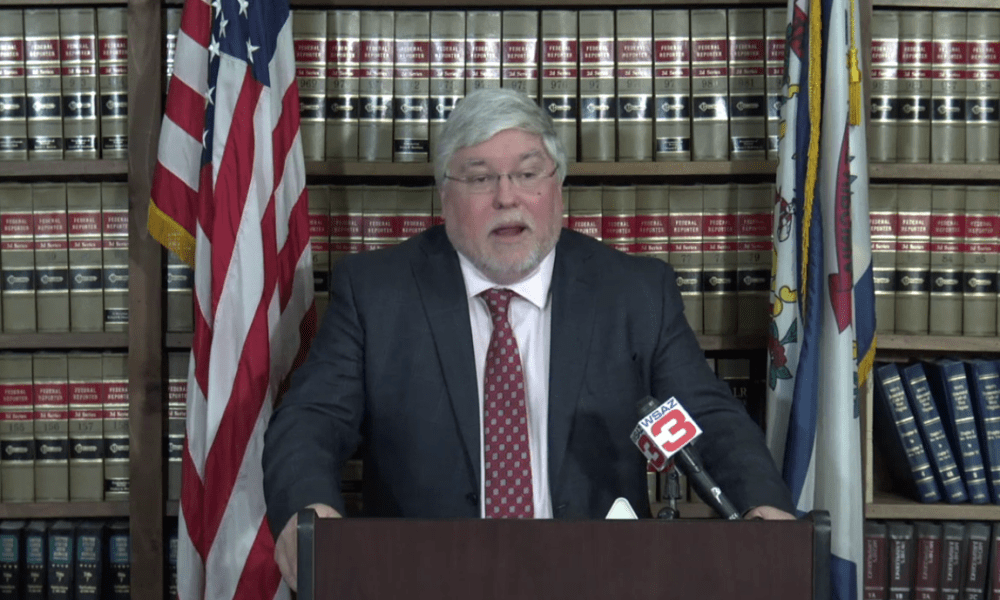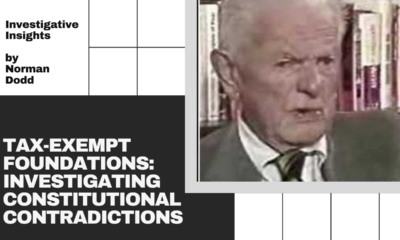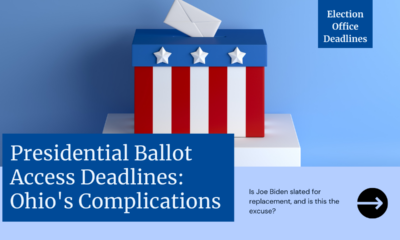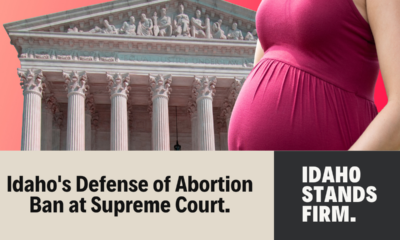Accountability
West Virginia Attorney General adds support for 19-state coalition challenging EPA carbon rule

West Virginia Attorney General Patrick Morrisey gave further details on a case before the U.S. Supreme Court concerning authority over greenhouse gas emissions, while also commenting on an appeals court lifting an injunction on COVID-19 vaccine mandates for large businesses.
Morrisey held a press conference Monday morning at the State Capitol Building. Last week, the Attorney General’s Office announced they had filed their opening brief in a court case brought against the U.S. Environmental Protection Agency.
During a press conference Monday, Attorney General Morrisey announced the legal action and touted its importance. He was joined at the event by Chris Hamilton, president of the West Virginia Coal Association; Jason Bostic, vice president of the West Virginia Coal Association; Bryan Brown, principal and owner of Bryan Brown Communications; Mike Clowser, executive director at Contractors Association of West Virginia; and Jared Wyrick, president of West Virginia Automobile Dealers Association.
“Our case is one of the most important cases before the Supreme Court this session and the outcome would have a ripple effect across the nation and hit West Virginia particularly hard,” Attorney General Morrisey said.
“If West Virginia prevails in our case, Congress will decide important questions related to our economy, the power grid, climate change, and more—just as the Constitution intended it to do. If not, then EPA can arbitrarily implement regulations that increase utility bills, create job losses, close down coal plants and much worse.”
Morrisey said members of Congress, led by U.S. Sen. Shelley Moore Capito, R-W.Va., are also filing briefs supporting Morrisey’s position. Capito and U.S. Rep. Cathy McMorris Rodgers, R-Wash., released their amicus brief Monday afternoon. The brief’s supporters included 46 senators and 45 members of the House of Representatives.
“If Congress had intended to give the EPA such sweeping authority to transform an entire sector of our economy, Congress would have done so explicitly. An administrative agency like the EPA may decide issues of such vast economic and political significance only when the agency can point to ‘clear congressional authorization,” the brief stated.
The states are challenging a ruling by the U.S. Court of Appeals for the District of Columbia Circuit that blocked the Affordable Clean Energy (ACE) rule, a Trump-era rule that replaced the Clean Power Plan with less stringent regulations on coal-fired power plant emissions.
“When a federal agency wants to take an action of such major financial, political, or social consequence, it needs to have a clear statement from Congress,” Morrisey said. “It needs to have authority delegated to it by Congress. That allows our system of government to work.”
The Supreme Court previously blocked the Clean Power Plan rule in 2016, first proposed under former president Barack Obama, preventing the rule from taking effect. The rule would have given expansive powers to the EPA to regulate the carbon dioxide emissions of coal-fired power plants. Morrisey led a 27-state coalition to secure the 2016 stay of the Clean Power Plan.
Former president Donald Trump scrapped the Clean Power Plan and replaced it with the ACE rule. “EPA now wields power to decide major questions implicating hundreds of billions of dollars, tens of thousands of potentially regulated parties, and years of congressional wrangling,” the brief stated.
“The agency may compel plant owners to pay competitors. It can even force plants to shut down. Yet Congress did not clearly say in any part of the (Clean Air Act) … that EPA can exercise this transformative power. That omission dooms any claim that EPA can.”
President Joe Biden announced a goal in April of cutting U.S. greenhouse gas emissions by between 50 percent and 52 percent of 2005 levels by 2030.
Terry A. Hurlbut has been a student of politics, philosophy, and science for more than 35 years. He is a graduate of Yale College and has served as a physician-level laboratory administrator in a 250-bed community hospital. He also is a serious student of the Bible, is conversant in its two primary original languages, and has followed the creation-science movement closely since 1993.
-

 Executive3 days ago
Executive3 days agoThe Hunters Have Now Become The Hunted: Their Cruelties Are Swelling The Ranks Of The People Worldwide!
-

 Constitution3 days ago
Constitution3 days agoCHAPTER 9: Norman Dodd Interview Space Is No Longer the Final Frontier––Reality Is [upcoming release April 2024]
-

 Clergy2 days ago
Clergy2 days agoWhy Do The American People Let The Corrupt Media & Politicians Set The Propaganda Narrative – Speak On Their Behalf
-

 Executive4 days ago
Executive4 days agoBiden ballot woes continue
-
![CHAPTER 10: Objective Reality Is Required for a Free Society Space Is No Longer the Final Frontier—Reality Is [upcoming release May 2024]](https://cnav.news/wp-content/uploads/2024/04/Objective-reality-v-acceptance-400x240.png)
![CHAPTER 10: Objective Reality Is Required for a Free Society Space Is No Longer the Final Frontier—Reality Is [upcoming release May 2024]](https://cnav.news/wp-content/uploads/2024/04/Objective-reality-v-acceptance-80x80.png) Education2 days ago
Education2 days agoCHAPTER 10: Objective Reality Is Required for a Free Society Space Is No Longer the Final Frontier—Reality Is [upcoming release May 2024]
-

 Entertainment Today3 days ago
Entertainment Today3 days agoCivil War (2024) – an incomplete prediction
-

 Executive5 days ago
Executive5 days agoWhy Fatal Police Shootings Aren’t Declining: Some Uncomfortable Facts
-

 Human Interest1 day ago
Human Interest1 day agoIdaho prepares to defend its abortion ban


